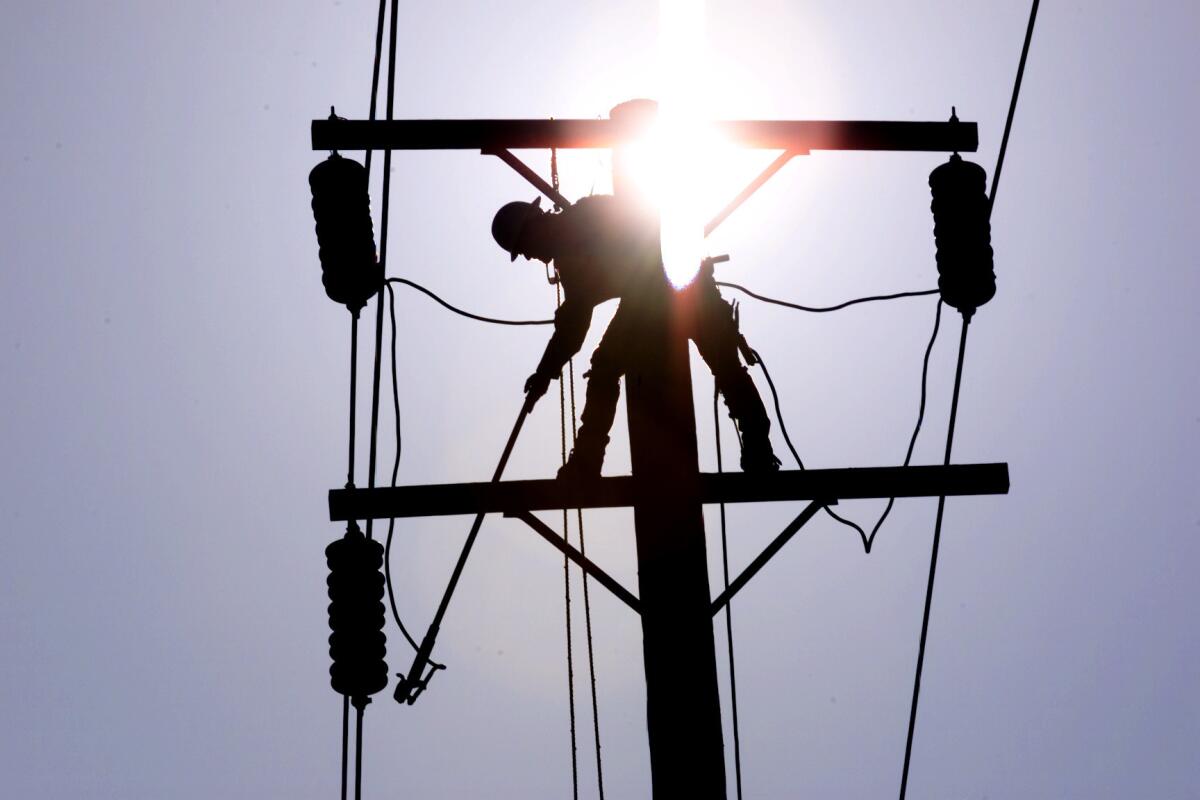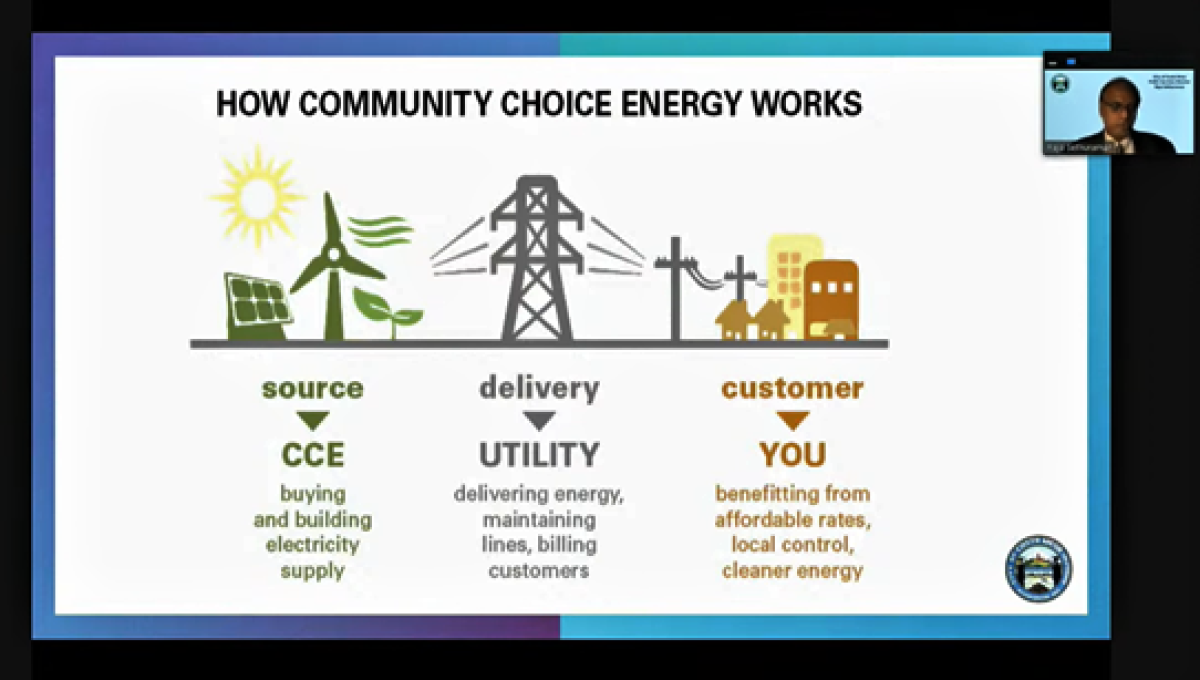Costa Mesa embarks on a power trip, exploring community choice energy partnership with Irvine

- Share via
Costa Mesa officials expressed interest Tuesday in partnering with the city of Irvine in a Community Choice Energy program that would allow member municipalities to purchase and sell electricity, a move that could stabilize rates and fund community energy programs.
Such a move is sanctioned by California Assembly Bill 117, a 2002 law that allows local governments to offer an alternative electric power option to constituents to investor-owned utilities, such as Southern California Edison, which currently operates Costa Mesa’s power grid.
Under the community choice model, Edison would continue to distribute the power, while a city-formed joint powers authority (JPA) would have the power to establish rates, create more local microgrids, increase reliance on renewable energy sources and direct revenue toward community programs and efforts of their choosing.

The city of Irvine has agreed to lead the charge and has been soliciting potential city members throughout Orange County to join the program and help file an implementation plan with the California Public Utilities commission by a Dec. 31 deadline.
Irvine has paid $150,000 for consultant support — a cost member cities would agree to split evenly upon joining — and will take out a loan of $2 million to $2.5 million in pre-launch costs and another $10 million to $20 million to acquire energy resources. Under the program, Edison would continue to distribute power to residents and businesses.
In return, the JPA would pay back the loan amount through revenues generated in the first few years of the program, and Irvine would have two representative voices on the authority board, compared to other cities’ single vote.
Ryan Baron, special counsel to the city of Irvine, said council members would have to approve an agreement with Irvine soon to get the ball rolling in time for a January 2022 implementation. Waiting would delay to another year a program that supports increased local control of utility services and could generate annual net revenues of $15 million to $20 million for the JPA.
“The rates and terms of service are controlled by the JPA, not by the Public Utilities Commission,” he said. “Ratepayers can address their grievances directly at the local level and not have to go through the maze of state regulation.”
Community members speaking in public comments roundly supported the move.
“Power comes from miles away, from a vast electrical system, so if someone far out there needed to shut the power off for fire protection, we’d probably get shut off, too,” said Hoiyin Ip, Orange County resident and co-chair of the Sierra Club California’s Zero Waste Committee. “That’s why we need to have local power with microgrids.”
Costa Mesa’s Craig Preston, a member of the Citizen Climate Lobby’s conservative caucus, said a Community Choice program would encourage competition and realize important cost savings.
“We could stabilize our energy rates with cleaner, more affordable energy if we get involved, instead of Southern California Edison continuing to increase rates for their transmission lines,” Preston said.
While council members largely agreed, some looked askance at Irvine’s JPA agreement and the imbalance of representation it proposed. While Irvine officials have pitched the program widely, and cities like Huntington Beach have considered joining, none so far have committed.
City Manager Lori Ann Farrell Harrison acknowledged timing was an issue, since the coronavirus pandemic pushed back discussions and the receipt of load data and financial analysis that would have come before the Dec. 31 deadline.
“The JPA agreement as structured is not tenable as far as I’m concerned, in terms of making sure we have an equal voice at the table,” she said. “It’s going to take a lot more analysis — we need to understand the finances and look through that analysis to understand the risks.”
Farrell Harrison stressed her small three-member team would be hard-pressed to do their due diligence on a matter of such importance in such a short period of time. Councilman Allan Mansoor said he was reluctant to overburden already busy staff.
As a compromise, Councilwoman Andrea Marr proposed seeing whether the city of Irvine would help facilitate the procurement of information that would help city staff run the numbers, so that the matter could be continued to the council’s Nov. 17 meeting.
Farrell Harrison said she would try her hardest to make it happen.
“There’s going to be something else that’s not going to get done,” she said. “[But] we’ll see what we can put together.”
All the latest on Orange County from Orange County.
Get our free TimesOC newsletter.
You may occasionally receive promotional content from the Daily Pilot.










